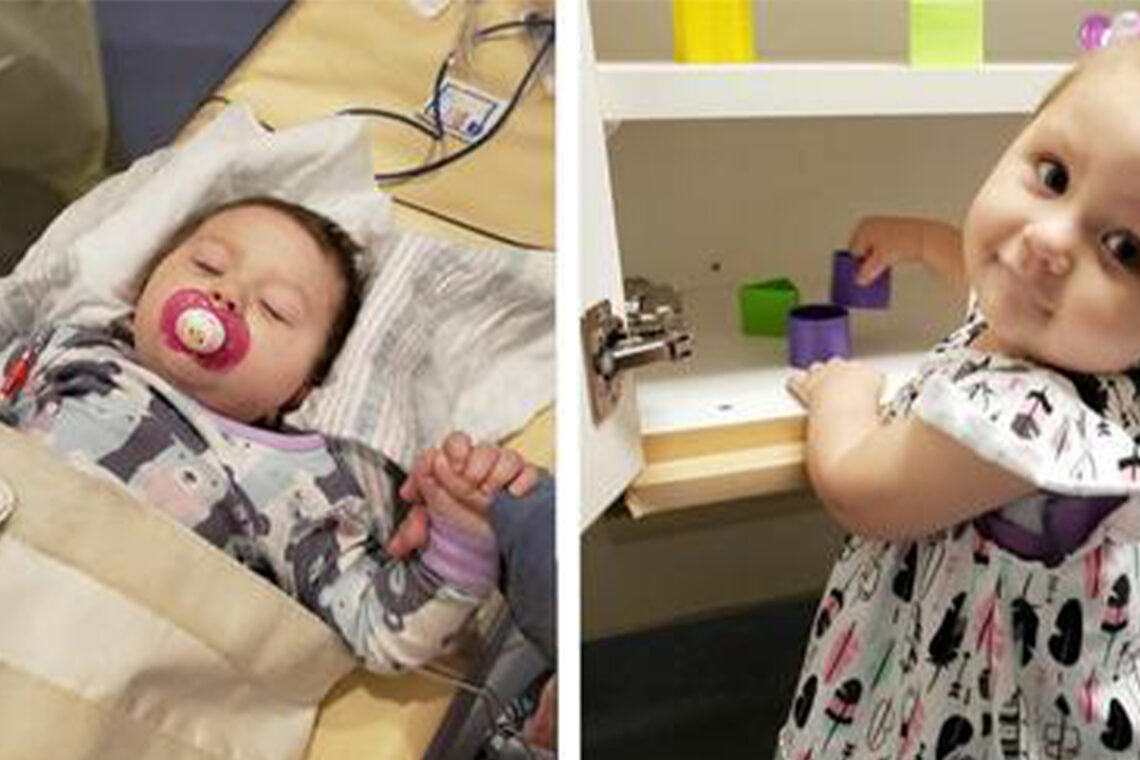
Neuroblastoma is a type of cancer primarily affecting children under the age of five. According to medical sources like the Mayo Clinic, it develops due to immature nerve cells and can appear in several areas of the body, though it most commonly affects tissues near the adrenal glands, located above the kidneys. This illness is known for its unpredictable progression and varying levels of severity, requiring individualized treatment plans for each patient based on the cancer’s spread and specific characteristics.
The treatment regimen for neuroblastoma is intensive and may include surgery to remove tumors, chemotherapy to target cancer cells, radiation therapy, bone marrow transplants, or immunotherapy. Physicians make treatment decisions based on the cancer’s stage, which indicates how far it has spread, and the patient’s overall health. Despite the demanding nature of these treatments, survival rates for neuroblastoma can be encouraging, especially for children diagnosed at earlier stages or with lower-risk factors. However, when diagnosed at an advanced stage, such as stage 4, neuroblastoma poses a significant treatment challenge, often involving extended periods in the hospital and multiple medical interventions.
One of the many young children affected by this disease is Molly Hughes, who was diagnosed with stage 4 neuroblastoma in 2017 at just 21 months old. Her mother, Chelsea Hughes, shared the heartbreaking news that the cancer had spread to several areas in Molly’s body, a situation requiring immediate and intensive medical intervention. Molly’s treatment journey included months of hospitalization, where she underwent numerous therapies, including chemotherapy, stem cell transplants, surgeries, radiation, and immunotherapy. Over 15 months, Molly bravely faced each treatment with resilience, spending a total of 130 days in the hospital. Her mother recalls how each step was challenging, with treatments taking a harsh toll on Molly’s young body.
Chemotherapy was particularly difficult, as Molly experienced severe side effects, including complications affecting her hearing, resulting in her needing hearing aids. Chelsea shared how heart-wrenching it was to see her little girl endure so much pain and discomfort, yet Molly’s resilience remained strong. The family endured countless nights in the hospital, enduring the highs and lows of each treatment phase while holding onto hope for Molly’s recovery.
After five exhausting rounds of chemotherapy, Chelsea received a phone call that changed everything. The news she had longed to hear finally came: Molly’s scans showed no evidence of disease, marking the beginning of her remission. Chelsea recalls the overwhelming joy and relief of that moment. She hugged her daughter tightly, feeling a profound sense of gratitude for the doctors, nurses, and everyone who had supported them throughout the journey. The young girl who had fought so bravely against such a formidable illness was now in remission, and the family could finally breathe a sigh of relief.
The Hughes family celebrated Molly’s remission with plans to visit the beach, an activity Molly had missed during her treatment. With an IV line in her chest, she had been unable to enjoy playing in water, something she loved. Now, with her treatment behind her, Molly could splash in the waves, creating joyful memories and embracing the simple pleasures of childhood that had been denied to her for so long. This beach trip became a symbol of triumph for the family, a well-deserved break from the hospital visits and medical procedures.
Despite Molly’s remarkable progress, her journey is far from over. Neuroblastoma has a significant risk of recurrence, and her medical team recommended that she start a trial medication designed to reduce the chances of relapse. This preventive treatment is expected to continue for two years, during which Molly will undergo scans every three months to monitor her health. The family remains vigilant, aware that while Molly’s current condition is stable, the road ahead will require continued strength and resilience. Molly’s mother shared her cautious optimism, noting that while Molly is in remission, it will take five years without any recurrence before she can be declared cancer-free.
The ongoing trial treatment is not without its challenges, but Chelsea remains grateful for each day that Molly remains healthy. Through frequent updates, she has shared her daughter’s progress, expressing joy with each positive scan and normal tumor marker report. In one recent post, she shared the news that Molly’s tumor markers were normal, celebrating another milestone in her daughter’s recovery. This news brings hope not only to the Hughes family but also to others who have followed Molly’s journey and offered their support through prayers and encouragement.
Throughout this experience, Molly has become a symbol of strength and hope, demonstrating resilience far beyond her young years. Chelsea continues to document her daughter’s journey, sharing the ups and downs, and celebrating each victory along the way. In doing so, she has created a community of support and awareness, bringing attention to the challenges faced by families dealing with childhood cancers like neuroblastoma. Molly’s story has touched the hearts of many, serving as a reminder of the strength that can emerge even in the most difficult of circumstances.
For Molly and her family, each day is a testament to the power of hope, determination, and the support of loved ones. Their journey through neuroblastoma has been a long and painful road, yet it has been marked by small miracles and precious moments of joy. Although the fight against this cancer is not over, Molly’s story continues to inspire all who hear it, reminding us of the remarkable resilience of young children and the enduring power of a family’s love and support.